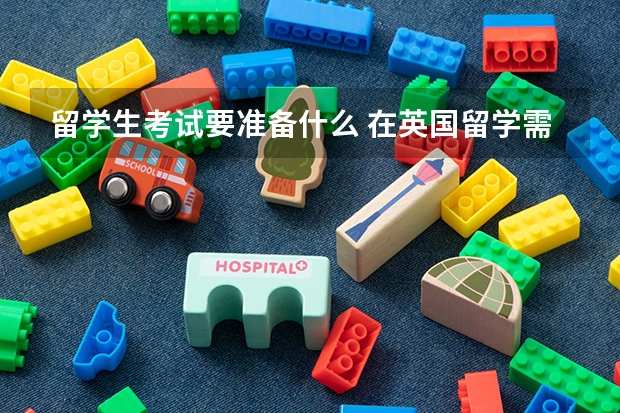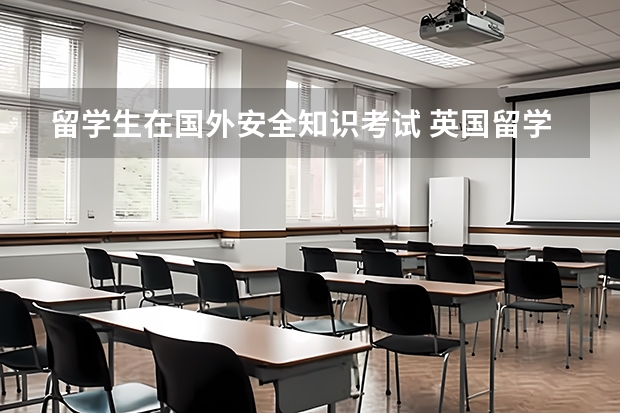如何应对雅思口语地方文化题?
2024-01-12 23:37:13 | 留学摆渡人
本文目录一览:

雅思考试口语面试的问题
环球教育老师为同学们总结雅思口语考试必备问题如下,希望对您的备考有所帮助~
1. What's your name?
2. Does your name have any special meaning?
3. Where were you come from?
4. What kind of landscape surrounds your hometown?
5. What is the main crop in your hometown?
6. What is the difference between Beijing and your hometown?
7. What are the main places of interest in your hometown?
8. What is the climate like in your hometown?
9. What is the character of the people like in the region where you live?
10. What are the differences in accent between the people of your hometown and Beijing?
11. What is people's favorite food in your region?
12. How do you make dumplings?
13. What do you do during the Spring Festival?
14. Why is the Spring Festival so important to Chinese people?
15. Can you describe one of the main festivals celebrated in your country?
16. Tell me something about the Lantern Festival.
17. Tell me something about the Qing Ming Festival.
18. Tell me something about the customs of your country.
19. How long have you lived in Beijing?
20. What is the weather like in Beijing?
21. How do you compare the climate in Beijing with that in your hometown?
22. What place in Beijing do you like best? Why?
23. Which is the worst place you've been to China?
24. Which is the best place you've been to China?
25. What places in Beijing should a foreigner visit? Why?
26. Are there any special customs about wedding in your region?
27. Describe a traditional wedding ceremony. 留学摆渡人
28. How do Chinese usually celebrate birthdays?
29. Are there any traditions concerning the birth of a baby?
30. Do you enjoy shopping?
不知道以上内容能否对您的雅思备考有些许帮助,如有雅思备考相关问题可以随时在线咨询我们的环球教育老师~~第一时间为您制定计划解答疑问,希望同学们都可以取得理想的雅思分数~
环球教育秉持教育成就未来的理念,专注于为中国学子提供优质的出国语言培训及配套服务。环球教育在教学中采用“九步闭环法”,帮助学生快速提升学习效能,同时提供优质的课后服务,跟进学生学习进程,为优质教学提供坚强的保障。目前,环球教育北京学校已构建了包含语言培训、出国咨询、国际课程、游学考察、在线课程等在内的一站式服务教育生态圈。相关问题可在线免费咨询,或拨打免费热线400-616-8800~~

如何应对雅思口语地方文化题?
今天环球青藤为各位雅思考生带来如何应对雅思口语地方文化题? 大家好,我是环球青藤的王炎龙老师。很开心我们又见面了,这次我将和大家一起分享雅思口语当中一道有趣的Part2,描述一个地方的文化(culture)。听到culture这个词大家可能会觉得比较难,因为文化这个概念太广泛太空洞,实在无法清晰地描述。其实不然,范围越大的东西我们思考的视觉就越开阔。文化包含方方面面,咱们只要选择其中一点讲清楚便可。而直观简单的文化其实可以理解成一个地方的生活习惯,比如西方人见面时喜欢拥抱,韩国人见面时喜欢鞠躬,印度人喜欢拿手抓饭,日本人吃拉面时喜欢发出声音...... 我们可以说的太多太多啦。 我先带大家看一下题目: Describe a place you went to and learned another culture You should say: where you went what you learned how you learned it and explain how you felt about this culture 我们在Part2当中自我白要达到2分钟,所以这4个小问题每一个我们都要能拓展到30秒钟左右。 好了,咱们就要开始一段有趣的文化之旅了,大家跟上我哦 今天,我们将举一个日本人吃拉面时喜欢发出声音的例子把这道题目轻松解决。 ONE POSSIBLE VERSION: 1.Today, I’d like to descrieb(这样开头的话会让考官觉得你很正式和有礼貌) a place I went to and learned another culture. Well, I went to Japan three years ago with my friends. (个问题的任务还没有结束哦,因为我们要说30秒左右,所以我们要把我们去的这个地方简单介绍一下)You know, Japan is a civilized country with a long history. It’s our neighbor and we have a lot in common. We both eat rice and use chopsticks. And I’m pretty interested in the Japanese history,culture and cuisine. 2.Hmm. In Japan, I learned that, the Japanese people like to slurp when they are earting noodles. I think it is considered as a rude behavior in some other countries, including China. But in Japan, people make the loud sounds when they are eating because they think the noodles are extremely delicious. And you can slurp as loud as you want.( 回答第二个问题时我们就要将这种文化/生活习惯清晰地解释给考官听。Slurp:吃饭时嘴里发出声音) 3.About how I learned this culture. Well, since I am a big fan of the Japanese food, after we checked in the hotel, I surfed the internet and tried to find the best noodle restaurant in Tokyo. Then I found it. My friends and I went there immediately. After we walked into the restaurant, we were shocked by the exotic table manners.(第三个问题问的是如何学会的,咱们可以讲一个小故事。Exotic:异域的) 4.As for how I felt about this culture. Hmm, at first, I couldn’t accept itb at all cos I thought it was too rude and even a little disgusting. Then I lost myself in the delicious noodles and slurped together with the Japanese. Now, I think the Japanese people are very interesting. They have their own way to express how much they love the noodles and I respect that.(第四个问题是要求我们谈谈感受,我们可以说说这前后的变化,这样就可以轻松的将答案拓展开来啦)。 同学们可以通过以上的解题思路试一试自己的故事: 1.介绍某个地方 2.一个与众不同的生活习惯 3.旅游时经历习得 4.感受从无法接受到接受。 哈哈哈,说了这么多,大家是不是在这个寒冷的阴雨天里也想来一碗热腾腾的日式豚骨拉面啊?我们一起slurp吧! 以上是今天的如何应对雅思口语地方文化题的全部应对方法,环球青藤希望各位在考试中能够冷静分析,切不可慌乱,能够在雅思考试中取得。如需了解更多雅思培训的相关信息,欢迎拨打环球青藤的免费咨询热线400-060-9663进行咨询,或者点击环球青藤网站页面的“在线咨询”与环球青藤名师直接对话。
雅思口语机经应该如何使用
对于刚刚备考雅思的同学来说雅思口语是个难点。许多同学会选择看一些机经。那么雅思口语机经如何使用?因为有可能考题会重复往年的话题,但是拿到雅思口语机经如何使用呢?环球青藤小编为大详细介绍一下。希望可以帮到大。雅思口语机经即雅思口语话题库,雅思口语是每四个月(1月、5月、9月)会进入变题季。雅思口语变题季会将一部分话题淘汰,并增加新的雅思口语话题,这些雅思口语话题组成的雅思口语题库是好的雅思口语备考资料。
这里所谓的新题,有可能是几年前考过的话题,有可能是之前考题的稍作变换,当然也有可能是从来没有过的纯新题。当然这当中大部分还是上一季的老题沿用。
雅思口语机经怎么用之备考建议:
1.制定雅思口语题库练习计划
雅思口语题库的题量大约在50-60个话题之间,雅思口语备考试时间较好在4个月内,注意避开雅思口语变题季。这样备考的话题范围是稳定的。其次是雅思口语备考试话题建议是1天3-5个,完成一轮后再反复滚动。
2、雅思口语陪练的重要性
雅思口语备考先要解决的是开口说的问题,雅思口语题库是没有答案的,所有的口语素材都要靠考生自己积累。雅思口语的考都是一对一的谈话模式,那么即使你准备好所有的书面口语话题的资料,没有及时的进行口语练习,那么效果也不会是你想象的那么好。找一个靠谱的雅思口语陪练进行一对一口语对练是目前比较好的方法。一个好的雅思口语陪练胜过自己练习10次的效果。 以上就是如何应对雅思口语地方文化题?全部内容了,了解更多相关信息,关注留学摆渡人。
免责声明:文章内容来自网络,如有侵权请及时联系删除。
-
 留学生可以报考警察考试吗 开始留学生不得报考公安
留学生可以报考警察考试吗 开始留学生不得报考公安2023-09-06 02:00:23
-
 为什么留学生不用考试 为什么留学生考试,出国留学考那么少?
为什么留学生不用考试 为什么留学生考试,出国留学考那么少?2023-09-07 13:37:40
-
 留学生考试要准备什么 在英国留学需要参考的考试有哪些
留学生考试要准备什么 在英国留学需要参考的考试有哪些2023-09-07 05:50:29
-
 美国留学生在家考试考什么 美国大学可进行“带回家考试”
美国留学生在家考试考什么 美国大学可进行“带回家考试”2023-09-03 11:49:08
-
 留学生在国外安全知识考试 英国留学安全常识
留学生在国外安全知识考试 英国留学安全常识2023-09-03 09:01:07
-
 雅思口语评分标准有哪些?
雅思口语评分标准有哪些?2024-01-15 20:58:50